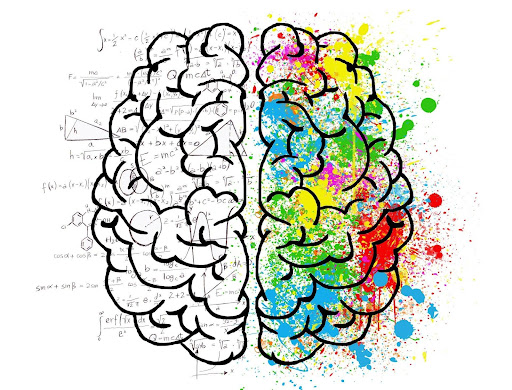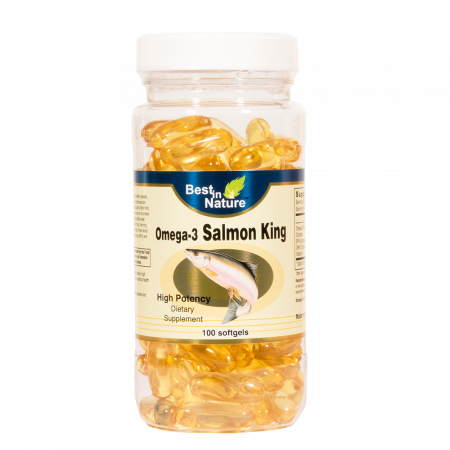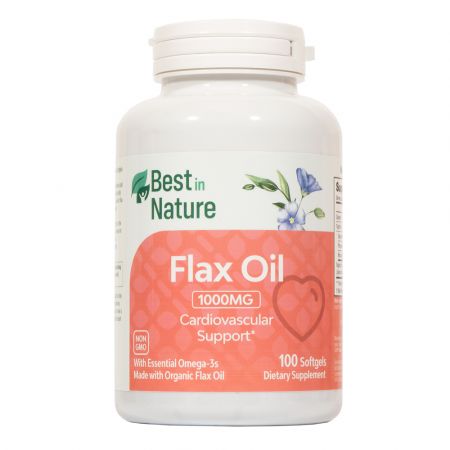
Many brain foods have a little something in common: omega-3. These fatty acids are vital to your brain's health, protection, and best functioning. Read on to learn more about the many benefits of omega-3s for your brain.
Related: HOW MUCH FISH OIL SHOULD I TAKE: THE PROPER OMEGA-3 DOSAGE
What Are Fish Oil Omega-3s?
Fish is often referred to as brain food and there’s a simple reason why. The omega-3 fatty acids in fish oil are beneficial to your brain and mental health. There are two types of omega-3 fatty acids - EPA and DHA. These are potent anti-inflammatories and vital to human development and heart health. It's tough to find EPA or DHA in other foods; they're almost exclusively found in fish oil and fatty fish. So, if you aren't a big fish eater, you're likely deficient in EPA and DHA.
Despite a diet low in fish, your body can still make EPA and DHA from another omega-3 called alpha-linolenic acid (ALA). This is found in several food sources like flaxseeds, walnuts, chia seeds, soybeans, soybean oil, and canola oil. Unfortunately, this conversion from ALA to EPA and DHA is an inefficient process. Less than 10% of the ALA you eat is converted to these other vital omega-3 fatty acids. As a result, those who don’t eat fish regularly can consider an omega-3 supplement.
Should You Take Fish Oil for Your Brain?
Did you know that your brain is 60% fat? It should come as no surprise that omega-3 fatty acids are required for your brain to function properly and efficiently.
Here are some ways omega-3 fatty acids aid the brain and nervous system:
- Boosts blood flow in the brain
- Supports communication between neurons
- Protects cell membranes
- Helps brain tissue to grow
- Supports the synthesis and function of your neurotransmitters
- Improves memory
- Can prevent neurodegenerative and neuropsychiatric disorders
EPA and DHA are so vital to your brain that without sufficient levels, your brain won't develop properly, won't function well, and will suffer deterioration as you age. Without these omega-3s, your cognition and brain health are compromised.
Why The Brain Needs Omega-3s

Now that you know that your brain needs omega-3s, here is why. As already discussed, the omega-3s in your food are EPA, DHA, and ALA. Now, EPA and DHA are vital to your brain's health, with DHA being the most abundantly found in the brain. Unfortunately, both EPA and DHA levels decrease as we get older. And the levels of DHA fluctuate depending on the kind and amount of fatty acids in our diet.
When your brain has sufficient levels of EPA and DHA, your nerve cells can communicate faster and more efficiently. Additionally, the outer membranes of your neurons and the myelin sheath (the protective layer around your brain cells) are made of these fatty acids. Damage to the myelin sheath can lead to loss of coordination, muscle weakness, vision loss, and muscle spasms. Diseases like Multiple Sclerosis can also develop. But omega-3s can repair such damage and restore your neurons and myelin sheath to health. So, it's easy to see why ample amounts of EPA and DHA is essential to your brain and cognition.
Related: 15 CHOLINE RICH FOODS FOR BETTER BRAIN AND LIVER HEALTH
How Do Omega-3s Protect Your Brain From Neurological Conditions?
Aside from protecting you from neurological damage, omega-3s can also improve neurological conditions like bipolar disorder, ADHD, depression, anxiety, dementia, and Alzheimer's. This is because, in addition to other contributors, these conditions result from neurotransmitter imbalances. For instance, omega-3s can help regulate neurotransmitters like dopamine and serotonin in the treatment of depression and reduce the symptoms of anxiety and PTSD (post-traumatic stress disorder). Another massive benefit of omega-3 is that it can reduce inflammation in the brain, which is a factor in depression.
Fish Oil May Benefit Mild Memory Loss
As well as supporting brain health and some repairs, omega-3s also support cognition and memory. One study of 23,688 older pooled participants demonstrated that four or more servings of fish each week had less memory loss over the following 4-9 years compared to older adults who only consumed one serving or less of fish per week. Researchers concluded that this improvement in memory was equivalent to a brain that was four years younger! Yet another study showed that older adults who enjoy moderate seafood consumption had a reduced risk of having markers for Alzheimer's disease.
Can Fish Oil Make Me Smarter?

Omega-3s aren't smart pills, but they may contribute to better cognition leading to greater intelligence. In this effort, there's no point in consuming more fish oil than the recommended amount because higher amounts don't equate to more remarkable results. It's enough to eat fish regularly without taking further supplements.
Does Fish Oil Help With Brain Fog?
None of us enjoy brain fog. A study of nearly 300 healthy women found that the participants with the lowest omega-3 levels also scored lower on cognitive tests measuring attention compared to women with mid-range or higher omega-3 levels. Please note that there was only a slight difference in scores between the two groups, and the women in the group with lower scores were still within the normal range. This study demonstrated that lower omega-3 levels are associated with sub-optimal brain function.
Related: EXERCISE AND THE BRAIN
Where to Find the Best Sources of Omega-3s

It’s clear now that Omega 3 is important but what is the best source? The healthiest place to get your omega-3 fatty acids is from fish rich in EPA and DHA, like salmon, barramundi, sardines, and trout. The farmed barramundi has the highest ratio of omega-3 to total fat (25%). This fish also has the highest level of omega-3s - 960 mg per 6 oz (skinless serving).
While it's always preferable to get your nutrition from a food source, if you aren't a fish-lover, fish oil supplements can be an excellent secondary source for omega-3s.
Bottom Line
Omega-3 is essential for a healthy brain and may be beneficial for some who are experiencing very mild memory loss but excessive fish oil or Omega-3 consumption won’t give you an increase in brain function above the baseline.
This article is provided for informational purposes only and is not intended to be used as medical advice. If you have immediate concerns about your health, please seek the help of your physician.
*These statements have not been evaluated by the Food and Drug Administration. This product is not intended to diagnose, treat, cure or prevent disease.
© 2022 Best in Nature All rights reserved






Validate your login
Sign In
Create New Account